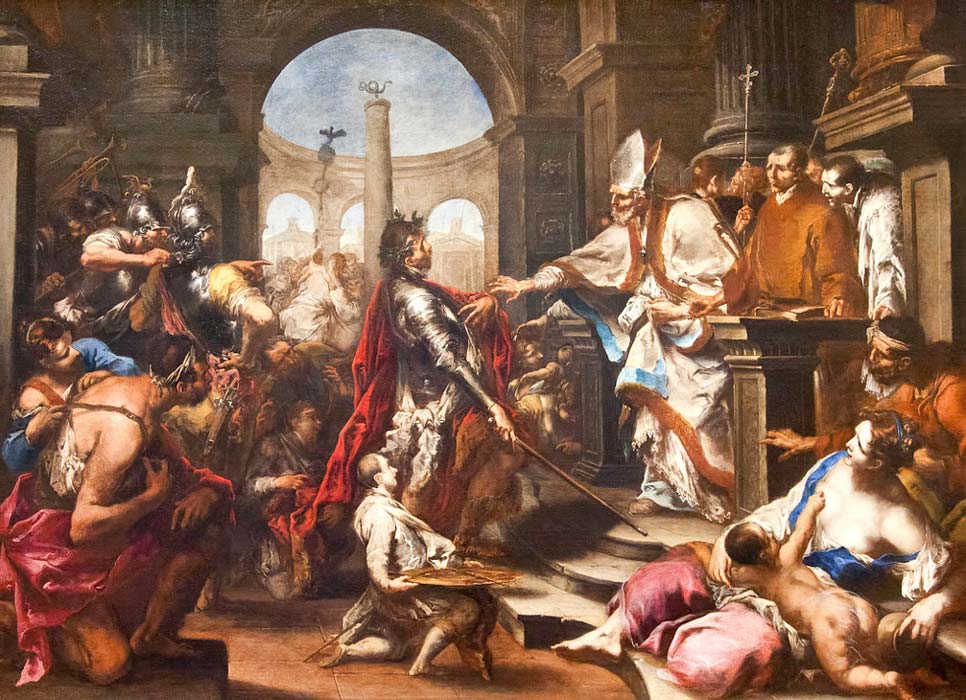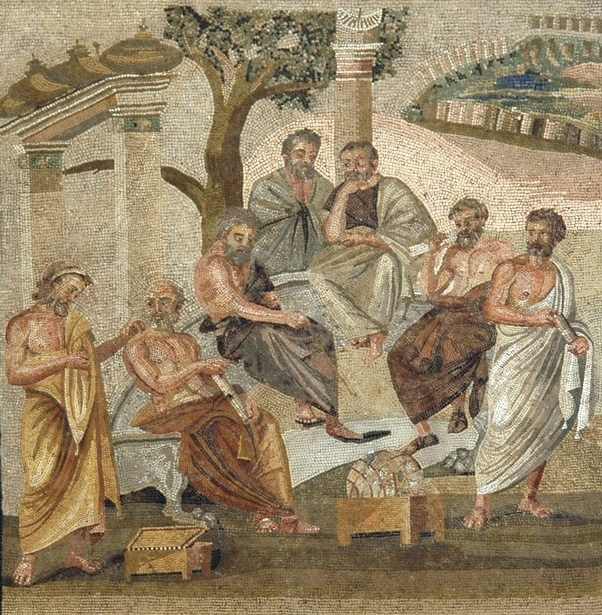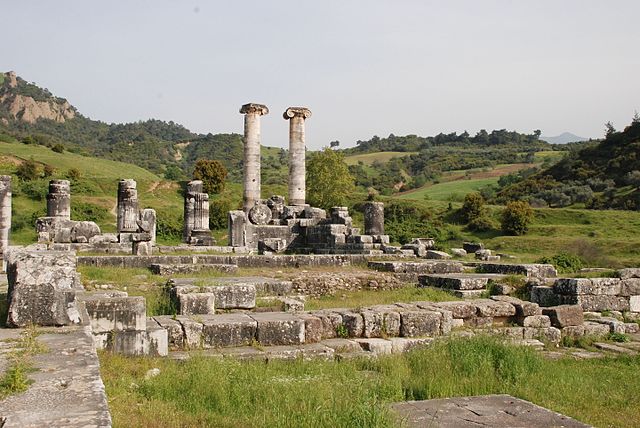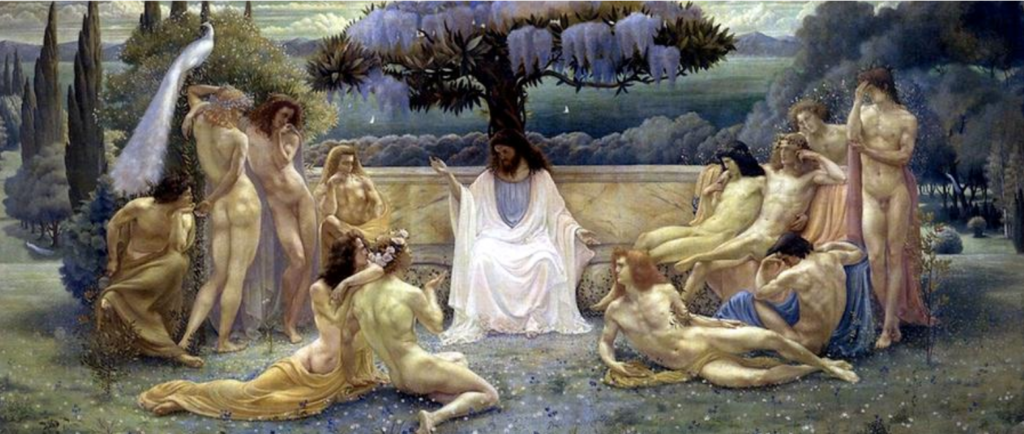Written by Ed Whalen, Contributing Writer, Classical Wisdom
There are many remarkable figures in the history of Greece. Too often, the focus is on the Golden Ages of Greece and Rome. However, even in Late Antiquity when the Graeco-Roman world was in decline, there were many significant figures—Eunapius among them. This famous Greek sophist, historian, and a dogged foe of Christianity is very representative of Late Antiquity thought and culture, particularly in regards to Classical ideas and values.
The Life of Eunapius
Despite being a man of letters, Eunapius left no record of his life. It appears that he was born in 347 AD in the Greek city of Sardis, which is in modern-day Turkey. At the time, Sardis was a rich and cultured city. It is likely that Eunapius, who studied with a famous in-law by the name of Chrysanthius, came from an affluent family.
Chrysanthius was a famous sophist and a high priest highly esteemed by, among others, Emperor Julian the Apostate and even Christians. Undoubtedly a brilliant student, Eunapius eventually went to Athens for further education, where he studied under the renowned Christian Armenian sophist Prohaeresius. It appears that Eunapius greatly esteemed his teacher. In Athens, the young man from Sardis studied rhetoric, philosophy, and medicine.
Despite the fact that his teacher and mentor was a dedicated Christian, Eunapius remained a pagan. At the time, the Roman Empire was becoming increasingly Christian. Eunapius became initiated into the Eleusinian Mysteries, a cult that was dedicated to Demeter. It is recorded that he was initiated into the mysteries by its last high priest. It seems that Eunapius was still living during the reign of Theodosius II (408-450 AD), the Emperor of the Eastern Roman Empire.
The Works of Eunapius
Eunapius was famous in his own time and beyond for his work The Lives of the Sophists. This was a collection of the biographies of leading sophists and philosophers of the 4th century AD, including Plotinus, Porphyry, Iamblichus and Eunapius’ teachers Chrysanthius and Prohaeresius. In total, Eunapius recorded the lives of twenty-three philosophers and teachers and discussed their ideas.
Eunapius’ work shows the dynamism and richness of intellectual life during Late Antiquity. It is also the only source for many leading Neoplatonist thinkers’ lives and schools of thought. Neoplatonism was a reinterpretation of Plato and is often considered rather mystical.
Eunapius was also a historian, continuing the work of the famous author and general Dexippus (3rd century AD). Sadly, this work is mostly lost, but it was an important source for later historians. Eunapius’ work was never popular and did not have a wide readership, partly because he was a poor stylist. Nevertheless, he was influential among professional rhetoricians and philosophers. Today many scholars see him as an important source on the Late Roman Empire as it was transitioning to the Byzantine Empire.
Eunapius and the Pagans
What is most remarkable about Eunapius was his paganism. At the time, pagans were under attack and even persecuted. Thus it was rather daring of Eunapius to openly defy the Christian Church and criticize its followers in his works. Even more so as Eunapius was probably writing after Theodosius I had made Christianity the official religion of the Empire in 380 AD.

In fact, the Lives of the Sophists could be seen as an attempt to promote Neo-Platonism as an alternative to Christianity in the spirit of Emperor Julian the Apostate in his failed attempt to revive Classical religion. Eunapius demonstrates that Classical beliefs were still held by some, even though the Roman empire was officially Christian. A class of conservative aristocrats and pagan intellectuals continued to preserve the traditions of the old world. Indeed, they kept the philosophy of Plato, Aristotle, and Socrates alive until the 6th century AD, when Justinian the Great closed the Academy in Athens.
Eunapius’ works were censored after his death and passages that criticized Christ excised. Given the increasing intolerance of Christians at the time, it is fortunate that his works were not burned.
Conclusion
Eunapius and his works show us that the Classical world during Late Antiquity was not an intellectual wasteland. Rather, it was a dynamic and vigorous time. Eunapius was not a great writer or thinker, but he was an important historian. His life and writings show us how paganism and Classical values survived in a Christianized Graeco-Roman world.
Reference:
Wright, Wilmer Cave France (1922) Philostratus and Eunapius: the lives of the Sophists. London: Heinemann












No comments yet. You should be kind and add one!
Our apologies, you must be logged in to post a comment.